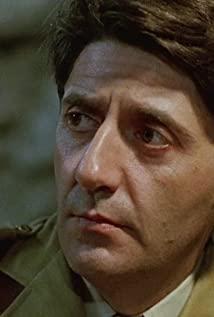/ Fujii
I admit that most of the reason for the infinite yearning for "Merry Christmas in the Battlefield" is because of Ryuichi Sakamoto and DAVID BOWIE, these two handsome men and talents in the music industry always make I was heartbroken. I often think that even if they don't have any special talent, just relying on that face is enough to become a popular idol star, not to mention that they do have superhuman musical talent.
I have seen the stills of this movie before, it is Sakamoto Ryuichi holding a saber, the tone is a bit dark, I can't see his face in the blur. But I instinctively felt the compelling charm of his body. He has always been a vulgar woman with no assertiveness. Those handsome men in the traditional sense always have an irresistible attraction to me. For example, I like Nakata Hideo, David Beckham, Wang Leehom, who sings, Takeshi Kaneshiro, and Feng Delun who act. Each of them has the face of a standard handsome guy. When I see them, I am elated.
But this time, my heart was full of decadent poppies, and I felt like I was knocked down at the same time. I'm not sure about Nagisa Oshima's attitude. Does the Englishman named "Lawrence" he aimed at love Japan or hate Japan? The conflict of Takeshi Kitano, the struggle of Ryuichi Sakamoto, and the ambiguity of DAVID BOWIE, what are all these for? Whether it is the attraction of closeness or the blur of distance, as a Japanese, Oshima Nagisa is eager to express his emotions for this nation thoroughly: he knows the limitations of insiders, so this film is international from the screenwriter to the production group. Convergence; he hopes to be able to look at Japan as objectively as possible from an outsider's point of view, but in the end he still can't carry out this objectivity to the end.
Similar to Nagisa Oshima's style in the past, "Merry Christmas in the Battlefield" also has an extreme beauty. After watching his early "Cruel Story of Youth", what I heard at that time was Nagisa Oshima's youthful and arrogant shouts, and the rebellious and hot blood flowed in the camera, just like the extraordinarily delicate apple in a dark room.
And his astonishing "Sensual World" makes sex almost the whole content of life, crazy and unrestrained sexual desire, women's endless demands, men do everything they can to satisfy women. Can sex exist when it is stripped of its material attachments and exists on its own? How can such a proposition be easy to think about, so I often have a pain like a mermaid dancing on the tip of a knife in front of the camera, even though I thought it was just as exciting as just having sex.
After sex is the thought of love, which is "Love of the Undead". In fact, this film should be called "Undead's Love" more appropriately. There is also the kind of gloomy and dreary atmosphere during which there is adultery, murder, burial, entanglement of the dead, and redemptive repentance. Every word is filled with ominous horror, and it is unexpected that such a film is showing a man's endless love for his wife. Even after his wife betrayed him and even killed him, his soul still refused to leave and continued to silently bless his wife.
The cry of youth, the insolence of sexual desire, the lingering of love, a series of sharp fireworks blooms are instantly bright but fleeting. In 1983, Nagisa Oshima filmed "Merry Christmas in the Battlefield", this time he explored his own nation.
You can see Nagisa Oshima's hesitation and confusion, but in fact, he doesn't even understand what kind of nation Japan is. In the face of the fact of war, plunder and aggression, he has no way to excuse himself or to atone for his country. So he found another entry point, which is the emotional world of a single Japanese. He put some Japanese men who had personally participated in the war on an island far from the Japanese mainland to face their prisoners of war: a group of wounded and disabled Allied soldiers. Abandoning the moral judgment of right and wrong allows both parties to stare at each other and feel each other's responsibilities, positions, threats and desires in a purely male group.
Captain JOYO played by Ryuichi Sakamoto is handsome and mighty. He thinks he is a unique man with supreme charm. He never doubted his own abilities and loyalty to his country until he saw DAVID BOWIE. This western white man has an angular face, and that kind of indomitable and pressing demeanor. As if the incarnation of justice, opened a gap in Sakamoto's confidence when they first met. In front of him, Sakamoto felt pressure and threat for the first time, but he was deeply attracted by him and had an uncontrollable desire. He knew that this was the real man.
If Sakamoto represents the most orthodox Japanese and DAVID BOWIE is the embodiment of the righteous in the West, then Lawrence has an obvious duality. On the one hand, he is a prisoner of war, and he deserves to be persecuted by the Japanese and hate Japan; on the other hand, he does not hate Japan. He sees the fear and kindness in the heart of a single Japanese, and he admires the Japanese samurai to cut open the abdomen. courage. For him, life is more important than everything else, and he would rather live than commit suicide, so he almost faintly worships Japan and loves Japan.
The single Japanese that Lawrence saw was the sergeant of Takeshi Kitano. To a large extent, it can be said that Lawrence's hatred and love for Japan were all born out of his contact with the sergeant. Sergeant is a tyrannical Japanese man (and Takeshi Kitano?), but he plays Santa Claus once and saves Lawrence's life. He told Lawrence that it was his honor that a samurai sacrificed for his country, and that suicide was understandable, and of course it was the choice of prisoners of war. The fact that Sergeant and Lawrence, captive and guard actually respect each other emotionally, Oshima's thinking is immersed in it.
The whole film is full of contradictions and doubts. It is a test and choice for one's own country, one's own responsibility, and one's emotions. Combined with the specific identities of the characters, it turns out that everyone is so difficult and hesitant.
The film's climax is the man's kiss, as Sakamoto reshapes his image in front of everyone, letting them know that he's still an absolute man. But DAVID BOWIE came out of the crowd and walked up to the captain with unquestionable firmness, he took his face, he kissed him!
The music was overwhelming, the captain fell in vain, and everything was proven. The man's temptation and threats to him were big enough to kill him, so he had to kill him first, using his power. The captain cut some of his hair on his deathbed and preserved it, perhaps as a memorial of shame, perhaps as a spur of faith, perhaps because of love? ! !
Lawrence's survival made him finally wait until the day when the war was won, and the reincarnation of the world could not escape the judgment of history. The last is Lawrence's confrontation with the sergeant. This time, the sergeant who was guarding him was taken prisoner. They said goodbye calmly, and as Kitano said "MERRY CHRISTMAS, MR LAWRANCE", the theme music sounded again. By the end of the film, I found myself completely devastated on the sofa.
When your country is on the evil side, when your nation has violated other nations, and when such a background is on your shoulders, what kind of right and wrong views should you have as a separate individual in the country; the opposite of the same proposition is when When your country is violated by that country, when your nation is oppressed by that nation, what kind of right and wrong views should you have when facing the individuals in that country?
Reminds me of Duras' "Hiroshima Love", a woman falls in love with individuals in enemy countries fighting against her own country. France and Germany, France and Japan, we knew it was impossible, but it still happened, and it happened twice. Can love exist independently? Faced with such a question, what do kind people use to answer? Only sink and sink, even if only for a short 24 hours. After 24 hours she decided to leave and return to her home country.
There is no clear answer to Nagisa Oshima's investigation. His hesitation continued until the end of the film, and he actually didn't know what kind of emotions he was carrying. He is not sure of the tyranny and kindness towards Sergeant, the love and hate towards Lawrence, the firmness and persistence towards BOWIE, or the arrogance and narcissism towards Sakamoto. Perhaps their mutual entanglement is the meaning of his investigation. We actually saw the truth, which is an undisguised secret.
The film's music is equally astounding, and Sakamoto's talent is on full display. The theme song at the beginning runs through, and with the music at the climax of the film, I was shocked and couldn't think in front of the camera. And the tune that appeared in the end, the grand string music seemed to tell the twists and turns of the heart, but it was helpless at the same time, it was still an inescapable knot.
We are all so small, if it is in the name of the country.
View more about Merry Christmas Mr. Lawrence reviews











